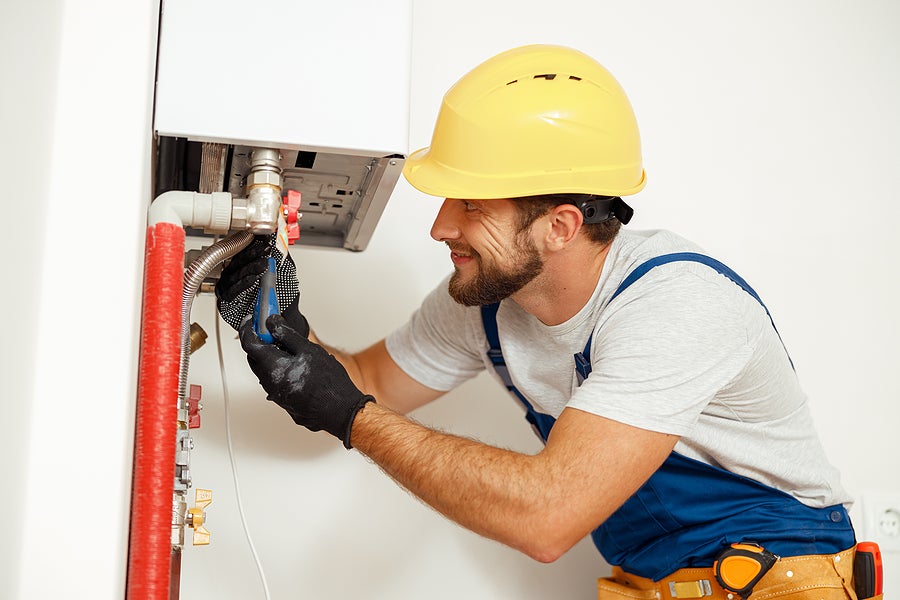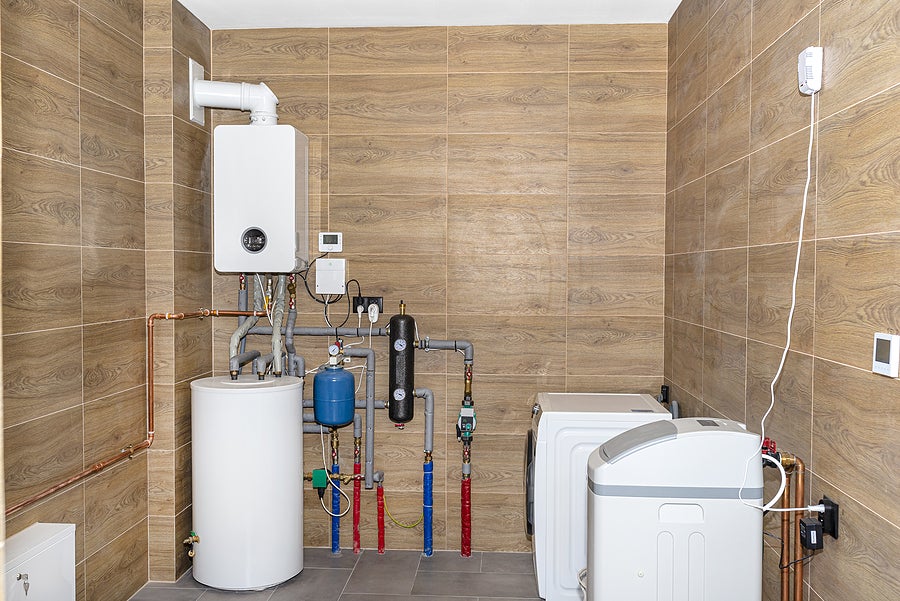
Many advertising campaigns advocate purchasing a new boiler as a means of saving money.
If it’s new, it must be energy efficient and save you a proverbial whack of cash, right? But what if this wasn’t the case?
What if purchasing a new boiler at this point in time was the worst financial move you could make this year?
Let’s be frank, for most people, a bright and shiny new boiler is simply a gurgling drain on their hard-earned cash, not something you need with the cost of living screeching to new and lofty levels almost daily!
The truth is improving the energy efficiency of your current boiler could be a lot more cost-effective than installing a new boiler, not something installation companies want you or anyone else to know!
Why A New Boiler Isn’t Always the Answer
While many installation companies are using the rising cost of living as the bogey-man of action when it comes to replacing older boilers (G-rated) with A-rated boilers, in reality, this can exponentially increase your household expenditure due to the costly expense of the boiler itself.
Furthermore, a gas boiler that isn’t set up to achieve its efficiency potential isn’t going to save you any money at all.
Not something you want to hear, but sadly this is the reality. Don’t believe us? Below we explain things a little further.
- Many buildings already have an A-rated gas boiler, as this has been a mandatory requirement for the past 17 years. Some buildings may have a B-rated boiler, but few are run on a G-rated boiler. So the likelihood of you owning one is slim to none. Therefore, in our opinion, replacing your older A-rated boiler with a newer A-rated boiler isn’t a very cost-effective move.
- Condensing gas boilers may be certified as 90-91% energy efficient (in the factory setting) but when installed are only 75-85% efficient. This is because condensing gas boilers are not set up in the same way as non-condensing boilers. In addition, most installers are unsure how to set them up correctly to achieve the energy efficiency they are capable of—leaving you with a new (costly) A-rated boiler with poor energy efficiency capabilities.
Improving Energy Efficiency VS Upgrading Your Boiler
Swapping out an older, poorly performing (very likely A-rated) boiler for a new, poorly performing A-rated boiler will simply add thousands to your expenditure. Furthermore, it’s unlikely to reduce your energy bills because the energy efficiency jump will be zero.
In fact, spending thousands on a new boiler for a 0% energy efficiency improvement seems rather a pricey non-effective solution when you can improve your current boiler and heating system for far less and achieve a whopping 10-25% energy reduction.
Make sense? It did to us!
Implementing Changes to Improve Your Boiler’s Efficiency
Homes with a condensing model boiler can easily reduce their energy bills with low-cost changes to the existing heating system (boiler and radiators).
If unsure what model boiler you have, you can check the user manual or look for a white plastic pipe situated underneath.
According to Heatable once you have determined what boiler model you have, you can implement some of the changes below and start saving those pennies rather than paying out wads of money on a new boiler.
- Regular maintenance
An annual boiler service by a Gas Safe Engineer ensures your boiler remains in good condition and prolongs its lifespan. In addition, the engineer can identify faults and gas or water leaks during a boiler service.
- Lower the temperature
Turning down the thermostat by 1 degree can reduce heating bills by approximately 10%. While this might not seem like a huge saving, it positively affects heating bills for those using their central heating regularly.
That said, set your thermostat at the lowest comfortable setting and reap the potential energy-saving rewards. In addition, the lower the return flow (water back to the boiler) temperature, the more efficient the boiler.
- Bleed the radiators
Releasing trapped air in the radiators ensures the entire radiator surface gets hot and therefore improves the heating system’s energy efficiency.
As a result, you will enjoy a warmer home and lower energy bills. However, if you notice your radiator has cold spots, it might be time to haul out the radiator key and get rid of those air pockets.
- Consider a power flush/system cleanse
A power cleanse is like a beauty treatment for your boiler and radiators! This process flushes out dirt, radiator sludge, and debris built up in the heating system over time.
Excess buildup can cause corrosion and blockages, which results in poor heating efficiency. However, before you haul out your work gloves and the trusty garden hose, this is most definitely a job for the professionals, as certain chemicals and expertise are required. Instead, contact a reputable Gas Safe engineer to do this job for you!
- Check the boiler pressure
Check the boiler gauge to ensure it is sitting between 1 and 1.5. Boiler pressure that is too low can increase energy bills due to inefficiency, while pressure that is too high can cause the boiler to develop faults.
If your boiler is registering an unusual reading, you can repressurise your boiler by following the guidelines in the boiler manual. However, if unsure of the process, you can contact a Gas Safe registered engineer for expert advice and assistance.
- Eliminate loss of heat
Efficient boilers in a draughty home are not efficient at all.
This is because they must work harder to keep your home toasty due to heat escaping via gaps around windows or doors and poorly insulated walls.
Simple changes like using draft excluders for breezy doors, thermal blinds for windows, and ensuring your loft and wall cavities are adequately insulated can literally shave money off your energy bill.
In addition, basic pipe lagging for hot water piping reduces heat loss and keeps your hot water hot for longer.
1471 Views












